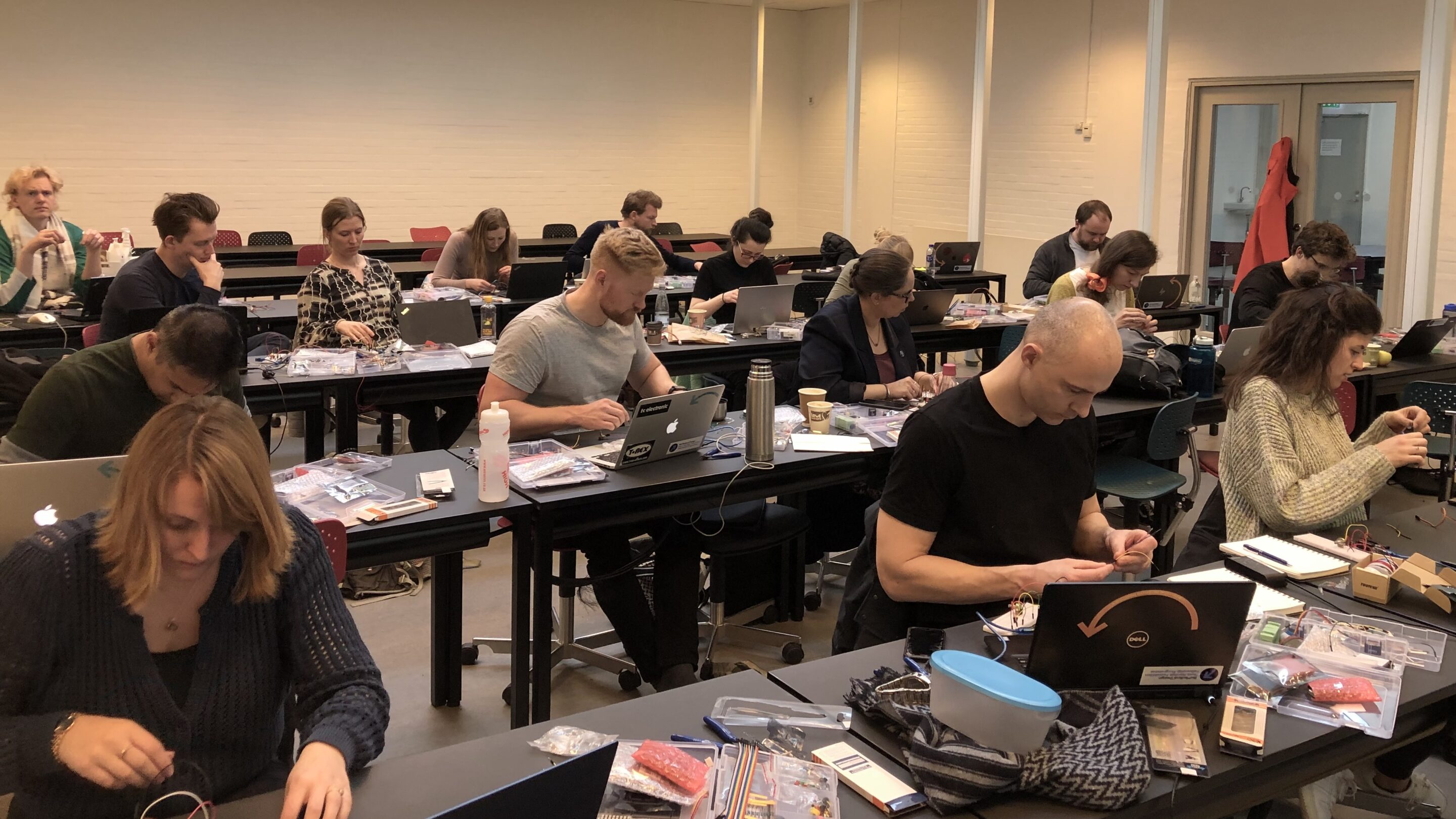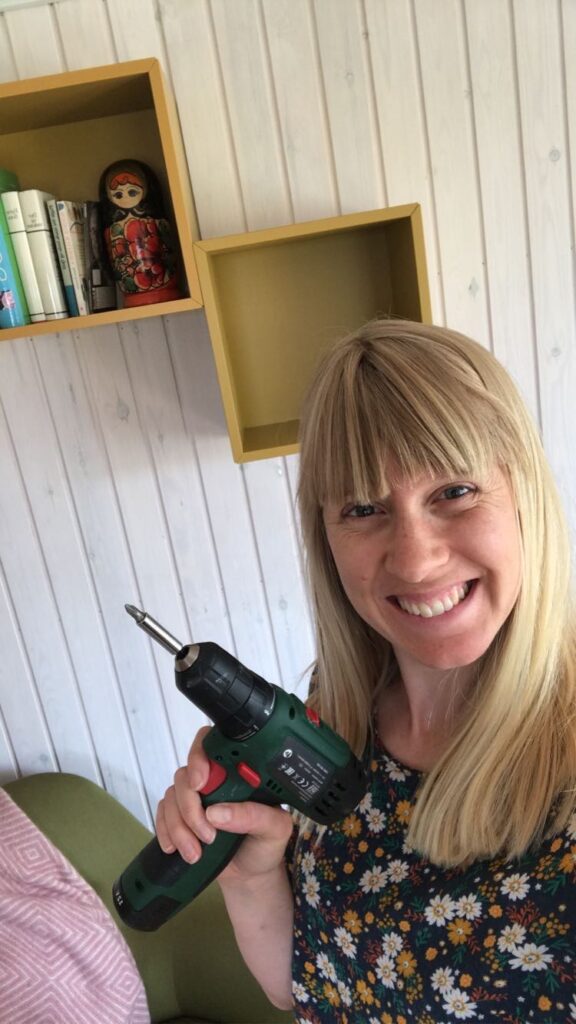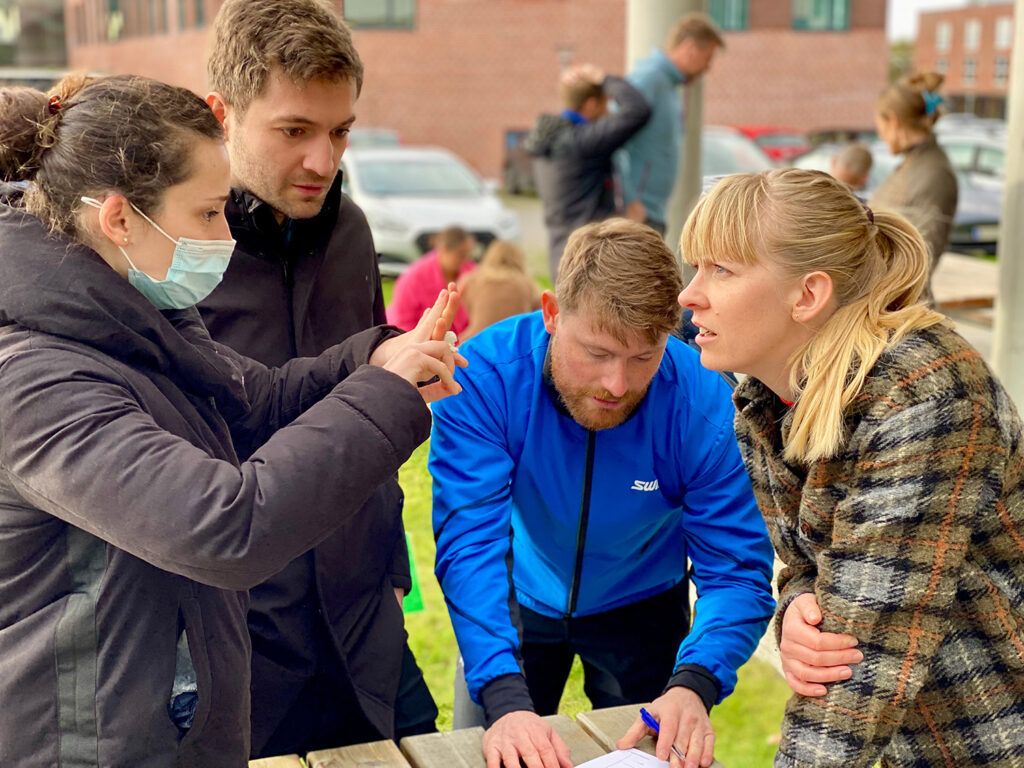
How to pick up electronic skills
While I am not experienced with tech-things like 3D-printing, digital prototyping or electronic devices, I am certainly always up for a challenge. I love learning new skills and for this reason, I was particularly excited about the prototyping workshops, we had as part of the Creative Skills Phase.
My background is nursing but…
I am Nanna. Before joining the BioMedical Design Programme, I worked at Aarhus University Hospital for six years at the Department of Endocrinology and Internal medicine. Most recently I worked at the Department of Mother and Child.
Working as a nurse involves numerous different tasks, and many are very hands-on. I have always enjoyed working with procedures such as insertion of catheters and feeding tubes because they require a certain dexterity and specific skills.
In my private life, I also love creating things with my own hands and learning-by-doing, that being knitting, gardening, or putting up lamps and shelves in my home.


I want to challenge status quo

I applied for the BioMedical Design programme because I sought to broaden my horizons and challenge myself professionally. In my job, I felt I was beginning to increasingly accept bad or mediocre solutions because of the narrative “that’s just how it is”.
I want to continuously be able to challenge the status quo and therefore the BMD programme felt like a perfect match for me. Learning about design thinking and improving my skills as a facilitator have been some of my favourite parts of the programme so far, and these are skills I will be able to use in my future career, whatever it may bring.
Going on a learning journey
On March 10th, 2022, my teammate Gülçin and I took a train from Aarhus Central station at 5.55 am. We had a long day ahead of us. We were scheduled to visit the Danish Technical University (DTU) in Lyngby and spend the entire day being introduced to the Aduino platform. At DTU we met Jacob Pedersen who described himself as an electronics design engineer and all round hacker. He assured us that he was used to teaching coding to kids at summer camps, and it would be easy-going.
The AHA-moment
We were handed our own kit to start building electronic prototypes, where Jacob quickly got us started on the basics of coding. This is when I remembered that kids are very fast learners, and I really had to focus to keep up with the pace. During the day, I got to experiment with making electronic motors and displays, and by the end of it, I had made a pulse oximeter work on my own! It was an incredible feeling to have made this even though the coding was too advanced for me to comprehend fully at this point.
Knowing the electronic field is good
I am still far from being a programmer, but this was such a cool introduction to an area that I had no prior knowledge about. Now I know that it is possible to do various electronic prototypes without spending significant money or time on it! We are currently experimenting with ultrasound modalities in my team, but since our concept and idea is constantly evolving, we cannot know if we will pivot into a new solution next week. Luckily, we have an electronics-engineer with experience in this field on my team, but the insight I got into coding and user design really benefits me in a way, that I too can be a part of this.
Future possibilities
We are now in the Commercial Skills Phase with the focus of further developing our solution while concomitantly looking into our Intellectual Property, business models and funding strategies. We have a lot of things to do in the next few months, and I am excited to see how far we will be with our solution by the end of the programme.
